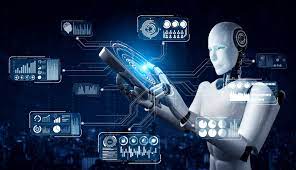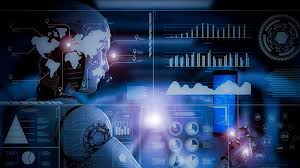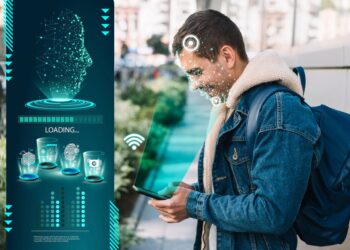Revolutionizing the Future: The Power of AI and Machine Learning
Artificial intelligence (AI) and machine learning have become buzzwords in recent years, but what do they really mean, and how are they changing the world around us? AI and machine learning are transforming industries and revolutionizing the way we work, live, and interact with the world. In this article, we will explore the power of AI and machine learning and their impact on the future.
What is AI and Machine Learning?
AI refers to the simulation of human intelligence in machines that are programmed to think and learn like humans. Machine learning is a subset of AI that involves the use of algorithms and statistical models to enable machines to learn from data and improve their performance over time.
AI and Machine Learning in Industry
AI and machine learning have become essential tools in a wide range of industries, providing new opportunities for businesses, researchers, and innovators. Some of the key areas where they are making an impact include:
Healthcare: AI and machine learning can be used to analyze medical data, identify potential health risks, and develop personalized treatment plans for patients.
Finance: AI and machine learning can be used to analyze financial data, predict market trends, and develop investment strategies.
Manufacturing: AI and machine learning can be used to optimize production processes, reduce waste, and improve quality control.
Transportation: AI and machine learning can be used to develop autonomous vehicles, optimize traffic flow, and improve logistics and supply chain management.

Benefits of AI and Machine Learning
The integration of AI and machine learning in industry provides several benefits for businesses, researchers, and consumers. Some of the key benefits include:
Increased Efficiency: AI and machine learning can help businesses to save time and effort in data analysis, production processes, and logistics, providing more efficient operations.
More Accurate and Comprehensive Analysis: AI and machine learning can provide a more accurate and comprehensive analysis of data, providing businesses and researchers with insights into trends and patterns.
Improved Decision Making: AI and machine learning can provide businesses and researchers with insights into potential risks and opportunities, helping them to make more informed decisions.
Enhanced Customer Experience: AI and machine learning can provide personalized recommendations and services, improving the customer experience and satisfaction.
Innovation and Creativity: AI and machine learning can help businesses and researchers to develop new products and services, promoting innovation and creativity.
Conclusion
The integration of AI and machine learning in industry is a game-changer, providing new and exciting opportunities for businesses, researchers, and consumers. AI and machine learning have the potential to revolutionize the way we work, live, and interact with the world, providing new avenues for efficiency, accuracy, decision making, customer experience, and innovation.
As we move forward, it is essential to ensure that we use AI and machine learning responsibly and ethically. This can be achieved through the development of ethical guidelines and regulations for the use of AI and machine learning, as well as through increased transparency and accountability in the development and deployment of these technologies.
The integration of these in industry is transforming the world around us, providing new opportunities for businesses, researchers, and consumers. The future is bright, and we can expect to see more advancements and innovation in the years to come. As we move forward, it is essential to harness the power of AI and machine learning to revolutionize industry while upholding social and ethical values.
However, there are also concerns about the use of AI and machine learning. Some argue that the use of AI and machine learning can lead to a depersonalization of services, reducing the role of human interaction in decision making and customer service. Moreover, the use of AI and machine learning raises concerns about the potential bias and inaccuracies in algorithms.
To address these concerns, it is essential to ensure that AI and machine learning technologies are used responsibly and ethically. This can be achieved through the development of ethical guidelines and regulations for the use of AI and machine learning, as well as through increased transparency and accountability in the development and deployment of these technologies.
In addition, it is crucial to recognize that AI and machine learning are not replacements for human interaction but rather tools to support it. AI and machine learning can provide businesses and researchers with insights into trends and patterns, helping them to make more informed decisions. Moreover, AI and machine learning can help to reduce the workload of data analysis and decision making, allowing individuals to focus on more personalized services and support.

The integration of AI and machine learning in industry is still in its early stages, and we can expect to see more advancements and innovation in the future. For instance, AI and machine learning can be used to develop more intelligent virtual assistants that can provide more personalized and human-like interactions with customers. Moreover, AI and machine learning can be used to create more innovative and efficient data analysis tools, providing more accurate and comprehensive insights for businesses and researchers.
The integration of AI and machine learning in industry has brought several benefits and opportunities for businesses, researchers, and consumers. AI and machine learning have the potential to revolutionize the way we work, live, and interact with the world, providing new avenues for efficiency, accuracy, decision making, customer experience, and innovation. As we move forward, it is essential to ensure that we use AI and machine learning responsibly and ethically to address concerns about the depersonalization of services and potential bias in algorithms. By doing so, we can harness the power of AI and machine learning to revolutionize industry while upholding social and ethical values.
Furthermore, AI and machine learning technologies have the potential to address some of the world’s most pressing issues, such as climate change, healthcare, and education. For instance, AI and machine learning can be used to develop more efficient and sustainable energy management systems, reducing carbon emissions and promoting renewable energy sources. Moreover, they can be used to analyze medical data and develop personalized treatments for patients, improving healthcare outcomes and reducing costs.
AI and machine learning can help to address issues of accessibility and inclusivity. For instance, AI-powered translation tools can help individuals who speak different languages to communicate and access services, promoting cultural diversity and inclusivity. Moreover, AI and machine learning can be used to develop more accessible education resources and tools, providing more opportunities for individuals with disabilities or learning difficulties.
The integration of AI and machine learning in society is still in its early stages, and we can expect to see more advancements and innovation in the future. However, it is crucial to ensure that we use these technologies responsibly and ethically to address concerns about bias, privacy, and security. By doing so, we can harness the power of AI and machine learning to address some of the world’s most pressing issues while upholding social and ethical values.
The integration of them in industry and society has brought several benefits and opportunities for businesses, researchers, and consumers. They have the potential to revolutionize the way we work, live, and interact with the world, providing new avenues for efficiency, accuracy, decision making, customer experience, innovation, and social impact. As we move forward, it is essential to ensure that we use these technologies responsibly and ethically to address concerns about bias, privacy, and security while upholding social and ethical values.
















